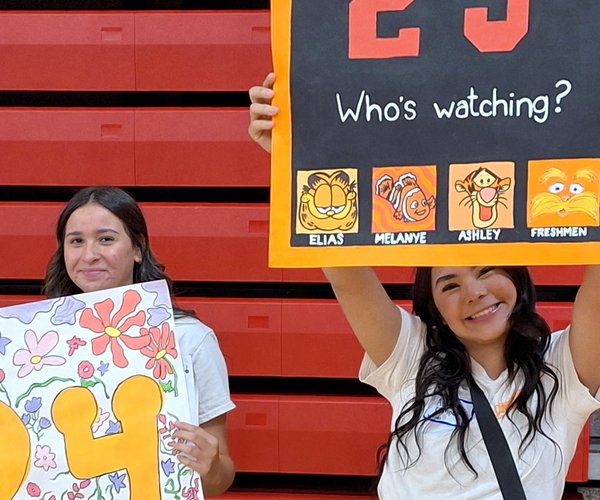Big League Dreams is stepping up its game.
The firm that has been leasing the city-owned sports complex that includes six replica baseball fields as well as an indoor soccer arena is implementing a list of upgrades they agreed to complete under an agreement they reached with Manteca officials.
Turf has already been replaced and kitchens remodeled in the two restaurants. In addition, timelines have been agreed for the replacement of playground equipment, refreshing the “crowd panels” in the outfields of the replica field, restroom improvements and other punch list items.
Current Interim City Manager Toni Lundgren put the BLD organization on notice last year that they needed to make upgrades as outlined in their 35-year contract or else the city would be looking for other vendors to take over the complex.
Things started going south when the BLD ownership was hit with a wave of events.
*A key member of the partnership died.
*The pandemic forced the complex to close for an extended period of time.
*Orders placed for material and equipment to do needed upgrades hit supply chain delays.
Mayor Gary Singh Tuesday said he is pleased with progress so far.
He noted BLD is now current on all payments owed the city
Singh added that BLD has ordered playground equipment and accompanying flooring that should be in place this spring barring any other chain supply issues.
“We set up a timeline and they are working to compete the tasks,” Singh said.
Singh said his biggest issues with the BLD situation as it has unfolded in the past year were:
*The fact the city hadn’t been collecting lease payments owed Manteca.
*The bad impression the facility was making on not just local players but those participating in tournaments that are critical to filling local hotels that in turn provide jobs for a number of local residents.
Turf replacement has addressed safety concerns.
The city — due in part to the finance department snafu uncovered two years ago — hadn’t stayed on top of the lease payments. There is now a software system in place that will allow the city to do that’s seamlessly.
Singh is confident BLD will be able to tackle the list of needed improvements to the point they will be completed in the coming months.
City officials noted that field rent increases passed on to local groups last year by BLD were driven primarily by the need to meet new state minimum wage laws that say the hourly rate go up to $15.50 — a $2.50 per hour jump between when the pandemic emergency mandated the closure of the complex in March 2020 and Jan. 1 of this year.
Lundgren noted that $2.50 per hour jump in minimum wage since Jan. 1, 2020 has also been the primary driving force behind the city raising recreation program fees.
BLD partnership
At the “third-of-the-way” mark in 2018 some 15 months before the pandemic, the private operator of the city-owned baseball and indoor soccer complex had paid Manteca $4.917 million in 11 years. That was running nearly 10 percent better than projections.
By BLD operating and maintaining the complex Manteca has avoided $6 million in annual costs through March 2020 when the pandemic closed the complex.
In 2018, a city survey revealed BLD was responsible for filling up 30 percent of the available hotel rooms in Manteca during any given week. That means the complex is responsible for generating $360,000 annually in room taxes of the $1.2 million the city collects annually.
That is in addition to the economic impact of players and fans that attend tournaments that have been booked for every weekend since BLD opened in late September of 2007 by spending money in restaurants, gas stations, and stores.
That means in an average year Manteca’s general fund is seeing just over a $1.2 million positive impact — $740,000 in revenue and $500,000 in cost avoidance. And because the redevelopment agency receipts were used to build the $30 million complex Manteca doesn’t have to worry about repaying general obligation bonds that cities such as Tracy typically float to build a sports complex. That means municipal services aren’t impacted by the general fund having to cover debt payment if growth fees for community parks come up short.
And by using a private-public partnership to operate and maintain the BLD complex and not sinking park fees into it — the park fees that were spent on indoor soccer arena upgrades were paid back by BLD in addition to the basic rent payment agreement — the city was able to afford to develop Woodward Park.
Before the BLD sports complex that includes six replica fields, an indoor soccer arena, two restaurants, and batting cages were built the Manteca Parks and Recreation staff ran adult softball leagues at Northgate Park.
The fees paid by teams when the city operated the ball leagues basically covered scorekeepers, officials, and the costs of other manpower to run the leagues. Maintenance of the fields — watering, mowing, prepping for games, and repairs — was not covered.
The city-owned sports complex is being leased for 35 years by Big League Dreams. Not only are they responsible for running leagues but they also are required to maintain and repair the complex. The net operational cost to the city is zero for 35 years.
Unlike traditional municipal baseball complexes, there is no loan or bond to pay back using general fund revenue. The RDA funds were from bonds that are being repaid with property tax tied specifically to new growth that occurred in the agency’s boundaries. The state has since ended RDAs. Taxes committed to repay the bonds will be split between various taxing agencies once the debt is retired.
Local leagues that draw players as far away as the Bay Area and Sacramento play during the week. The key to the BLD success, though, has been their ability to book tournaments every weekend since play started in the fall of 2007 until the pandemic hit.
Revenue from BLD lease payments and room taxes attributed to the sports complex, Manteca’s general fund will take in roughly $26 million over 35 years. That is in addition to avoiding $17.5 million in operational and maintenance costs.
To contact Dennis Wyatt, email dwyatt@mantecabulletin.com






